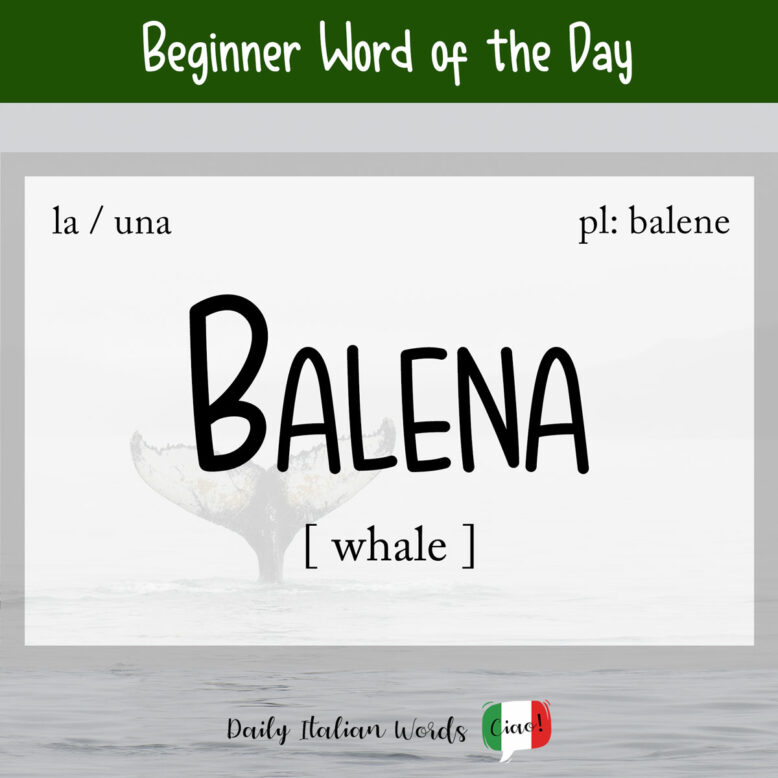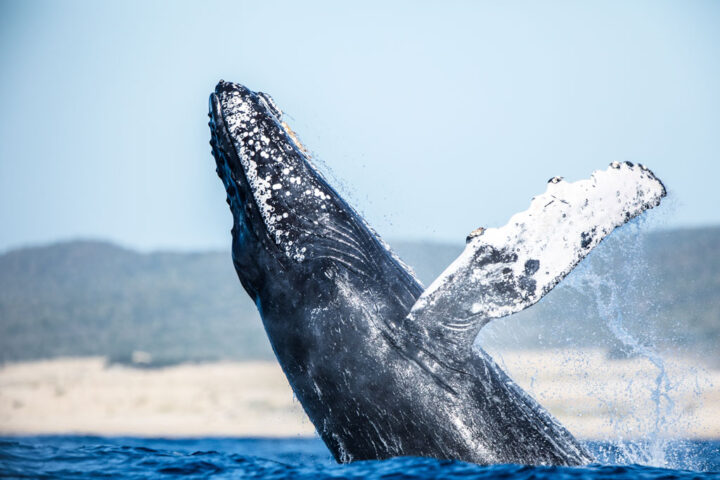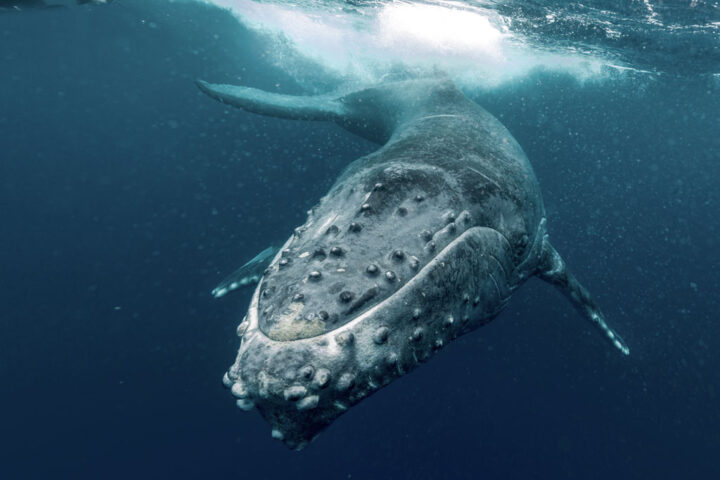The word for whale in Italian is balena (feminine, plural: balene), which comes from the Latin balaena.

When talking about a young whale calf or balena giovane, the diminutives balenottero or balenotto are used.
Whales are amongst the largest marine mammals (mammiferi marini) on earth, and are characterised by their streamlined hairless bodies, horizontal tail fin (pinna caudale), and blowhole (sfiatatoio) on top of their head for breathing.
Did you know that…?
Whales are actually descendants (discendenti) of mammals that lived on land. Their ancestors (antenati) began to adapt to aquatic life approximately 50 million years ago.
La balena è un grande mammifero marino.
The whale is a large marine mammal.

The blue whale (balenottera azzurra) is the largest of all living whales, its dimensions reaching 33 meters in length and 160 tonnes in weight, or put another way, the equivalent of 28-30 adult elephants (elefanti)!
Trivia
Balenottera sounds like the feminine version of balenottero, the diminutive of balena and the word for whale calf. Now you may think it’s quite funny that Italians use a diminutive as the name for the largest living mammal on Earth! However, according to the Dizionario Internazionale, balenottero may have derived from balenottera by mistake, as people wrongly interpreted balenottera as a diminutive word when it was not.
Some other well-known whales include:
- capodoglio = sperm whale
- balenottera comune = fin whale
- megattera = humpback whale
- balena della Groenlandia = bowhead whale
- narvalo = narwhal
- balena grigia = gray whale
Che emozione! Ieri sono riuscito a fotografare una balena che saltava fuori dall’acqua!
What a thrill! Yesterday I managed to photograph a whale jumping out of the water!
Figuratively, the word balena can be used to describe a person who is extremely overweight, and is often used for women. Be careful though – it can be quite offensive.
The noun also appears in the expression In culo alla balena (In the bum of the whale), which is the vulgar equivalent of In bocca al lupo (In the mouth of the wolf), the way in which Italians wish each other good luck. While it’s fine to use this phrase with close friends whose sensibilities aren’t easily shocked by four-letter words, it definitely isn’t the kind of thing you’d say to your nonna (grandma) (unless she has a good sense of humour)!

Heather Broster is a graduate with honours in linguistics from the University of Western Ontario. She is an aspiring polyglot, proficient in English and Italian, as well as Japanese, Welsh, and French to varying degrees of fluency. Originally from Toronto, Heather has resided in various countries, notably Italy for a period of six years. Her primary focus lies in the fields of language acquisition, education, and bilingual instruction.


